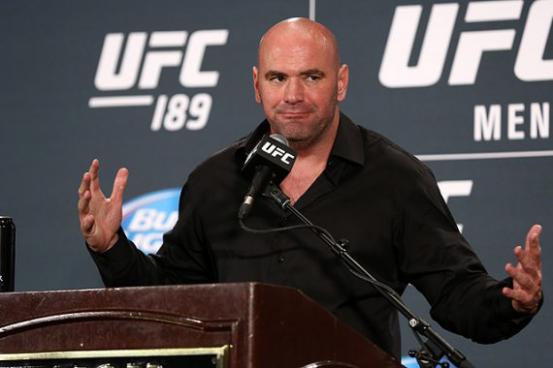- Commissioner’s statement on Ventura, Marte
- Ronnie O’Sullivan: Masters champion ‘felt so vulnerable’ in final
- Arron Fletcher Wins 2017 WSOP International Circuit Marrakech Main Event ($140,224)
- Smith challenges Warner to go big in India
- Moncada No. 1 on MLB Pipeline’s Top 10 2B Prospects list
- Braves land 2 on MLB Pipeline’s Top 10 2B Prospects list
- Kingery makes MLB Pipeline’s Top 10 2B Prospects list
- New Zealand wrap up 2-0 after Bangladesh implosion
- Mathews, Pradeep, Gunathilaka to return to Sri Lanka
- Elliott hopes for rain for Poli
Opinion: The Costs of Control
- Updated: May 2, 2016

Editor’s note: The views and opinions expressed below are those of the author and do not necessarily reflect the views of Sherdog.com, its affiliates and sponsors or its parent company, Evolve Media. Over the weekend, a video surfaced of UFC President Dana White giving a business seminar at Stanford University. In the clip, White discussed why he believed boxing is declining while MMA is on the rise. To him, it’s simple: “[Boxing] has become so greedy. Nobody was ever thinking about the future of the sport. It’s about how much money we can we all put in our pocket right here right now.” White expounded by posing a hypothetical scenario in which everyone in the room was guaranteed to earn $37 million that year, no matter what: “Guess what you’re gonna do? Not much.” In contrast, the Ultimate Fighting Championship incentivizes its fighters with bonuses, which in turn encourage fighters to perform better. For most fighters, the pay structure is a mixture of a guaranteed fight purse, a bonus for winning and potential bonuses for finishes and performances of the night. This, according to White, is the secret behind the UFC’s success. Let’s investigate that. Incentivization breaks down most simply into factors of intrinsic motivation — you do something because you want to — and extrinsic motivation — you do something because you get rewarded for doing it. It is both intuitive and evidence-based to say that intrinsic motivation is the stronger of the two, especially when it comes to long-term behavior. Think about it in terms of soldiers who fight for pride and patriotism versus hired mercenaries; after enough time spent in combat, the soldiers fighting for what they believe in will have a lot more desire to continue. The question, then, involves how extrinsic incentives affect intrinsic motivation. I’d be remiss not to clarify terms here, as they are commonly misunderstood. In social sciences, the word “positive” means something is added to the equation, whereas “negative” means something is removed. “Reinforcement” means it motivates you to do something again, whereas “punishment” means it motivates you to not do something in the future. Thus, there are positive and negative reinforcements and positive and negative punishments. The UFC’s pay structure is a system of positive reinforcements. If you do something the promotion wants you to repeat — win, put on a great fight or finish a fight spectacularly — you are given more money. This is as cut-and-dry an example of extrinsic motivation as there is. You’d be a fool to suggest that there is no place for such incentives; in many situations, they promote greater effort and improve performance. However, the long-term effects that they have on a person’s intrinsic motivation can often be detrimental. In many school and work settings, subjects said that contingency rewards made them …
continue reading in source www.sherdog.com
